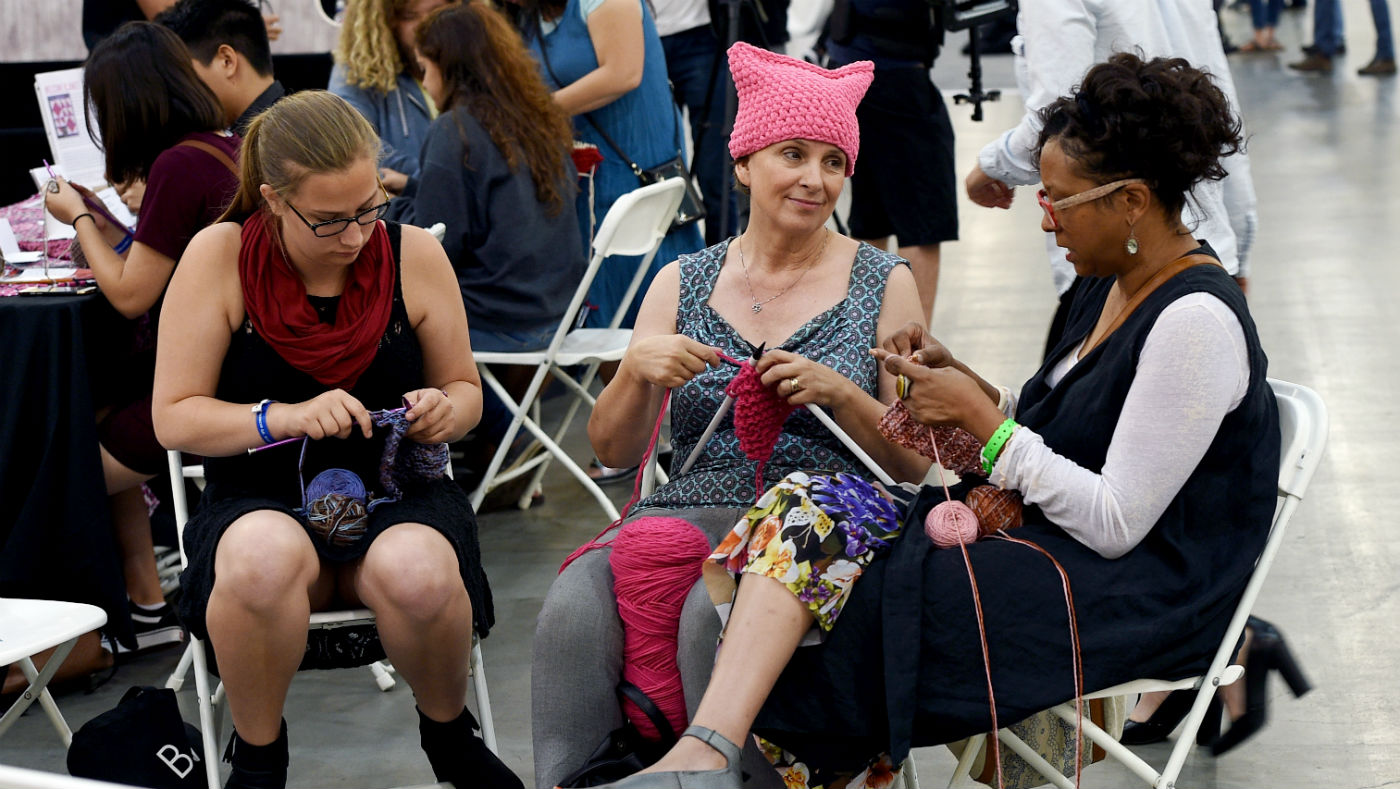Ravelry: how a knitting site is tangling with Trump
Crafting platform bans members from expressing support for ‘white supremacy’

A free daily email with the biggest news stories of the day – and the best features from TheWeek.com
You are now subscribed
Your newsletter sign-up was successful
A knitting website has become an unlikely battleground in the debate over US President Donald Trump’s alleged legitimisation of far-right politics.
Administrators for Ravelry, an online knitting community with eight million members, have announced that all expressions of support for the Trump administration are banned from its forums, including in posts, patterns and on personal profile pages.
A statement on the Boston-based site says: “We cannot provide a space that is inclusive of all and also allow support for open white supremacy. Support of the Trump administration is undeniably support for white supremacy.”
The Week
Escape your echo chamber. Get the facts behind the news, plus analysis from multiple perspectives.

Sign up for The Week's Free Newsletters
From our morning news briefing to a weekly Good News Newsletter, get the best of The Week delivered directly to your inbox.
From our morning news briefing to a weekly Good News Newsletter, get the best of The Week delivered directly to your inbox.
The message continues: “We are definitely not banning conservative politics [but]... Hate groups and intolerance are different from other types of political positions.”
Under the new guidelines, members are urged to report patterns that send a pro-Trump message to site moderators for removal. The site has already taken down a knitting pattern for a Confederate flag and another for a hat that said “build that wall”, says TechCrunch’s Catherine Shu, who adds that the ban seems to have been inspired by the actions of RPG.net.
The gaming site last year banned “advocacy of Trump from its forums on the grounds that the Trump administration was an ‘elected hate group’”, reports The Guardian. A statement by the site RPG.net administrators said: “[Trump’s] public comments, policies, and the make-up of his administration are so wholly incompatible with our values that formal political neutrality is not tenable.”
Anger and support
A free daily email with the biggest news stories of the day – and the best features from TheWeek.com
Ravelry’s announcement has provoked anger from pro-Trump knitters online, with some accusing the site of violating freedom of speech.
Some members declared they had cancelled their subscription in protest - prompting barbed responses from fellow knitters who have less sympathy for the president.
Self-styled “Christian conservative” blogger Carmine Sabia tweeted: “A torrent of legal issues are coming your way.”
But that seems unlikely, according to Gizmodo’s Matt Novak. “The First Amendment doesn’t apply to private web forums, and only specifies that the US government is not allowed to restrict the speech of private citizens,” writes Novak.
TechCrunch’s Shu, a member of Ravelry for 11 years, argues that it is “extraordinarily brave and meaningful” for small social media platforms to “take a stance that unequivocally calls out the link between the Trump administration and white supremacy”.
She writes: “I am a knitter… I am also a person of color [and] the site has been a big part of my personal life for more than a decade.”
In recent years, it has been “painful to see the empowerment racists take from the Trump administration, but even more troubling to see how many people insist that taking a stance against racism is ‘being political’”, Shu adds.
The Pussyhat Project
If knitting seems an unlikely battleground for politics, think again, says The Guardian. The newspaper points out that when Trump was first elected, thousands of protesters stepped out in homemade pink “pussyhats’”, in reference to his assertion that he liked to “grab” women “by the pussy”.
Indeed, textile arts have been “intertwined with social issues for centuries”, because for a long time they were “among the few ways women were able to gather for hours and talk by themselves”, says Shu.